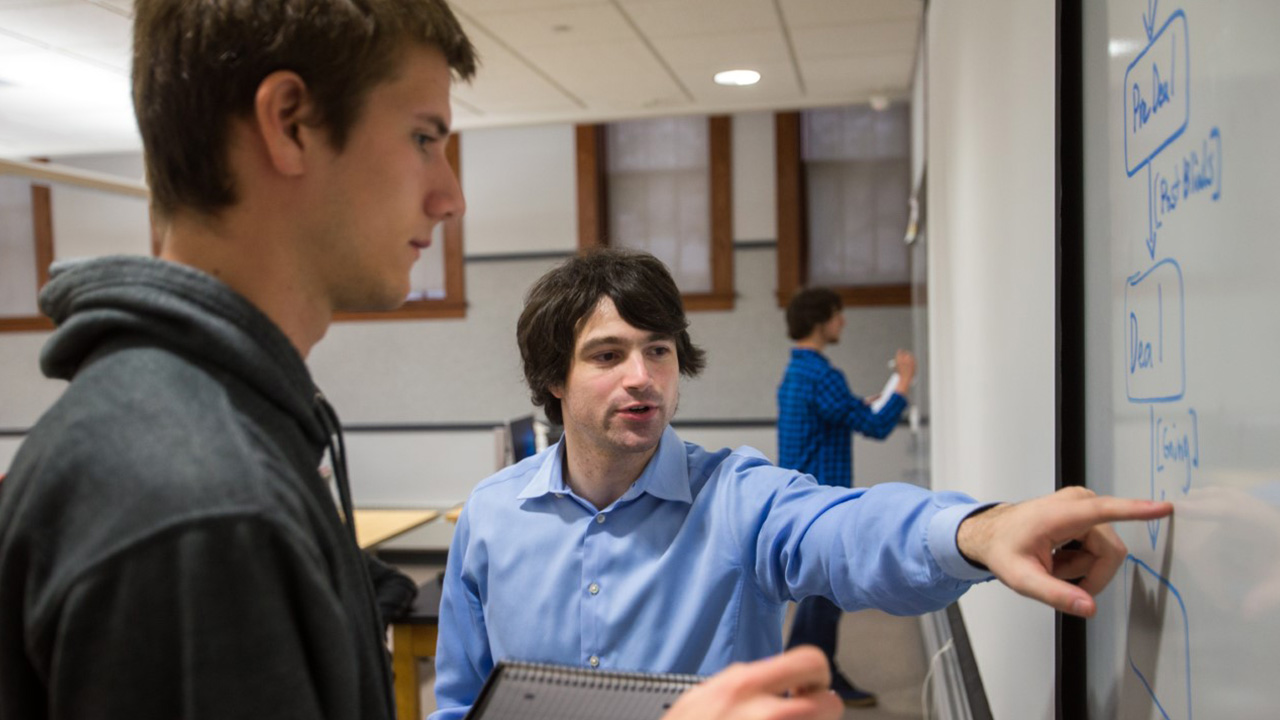
Dr. Douglas Selent, assistant professor of computer science and software engineering at the University of Wisconsin-Platteville is bringing awareness to neurodiversity through his Wisconsin Teaching Fellows and Scholars (WTFS) Program Scholarship of Teaching and Learning (SoTL) project. The program, “offers faculty and teaching academic staff a unique opportunity to collaborate with other exceptional teachers from across the UW System and from various disciplines.” As a selected teaching fellow, Selent is finalizing his research on developing a game to be used in his algorithm course this fall.
“I have a lesson to teach ‘Dijkstra’s algorithm,’ which finds the shortest path from one node to all other nodes in a graph. I will teach the students how to do that,” said Selent. “I want to make a game; the game is called Unicorn Land. It’s like a board game, but it mixes with some game elements from Mario Kart. All players have their unicorn, and they have to race down the Unicorn River using Dijkstra’s algorithm to find the shortest path down the river.”
According to Selent, the theme of the 2022-23 SoTL projects is diversity. Selent said he is focusing on the topic of neurodiversity and how it affects his students. Neurodiversity is a different way of thinking, which can affect how one learns or interacts socially.
“From my perspective, I don’t think many people know about neurodiversity or recognize it. I hope people become more aware of what neurodiversity is,” he said. “Personally, as educators, knowing a lot of our students are neurodiverse, we can help tailor their lessons a little bit towards them. Some things are very difficult for us, and certain ways of teaching are difficult for us to learn from.”
As Selent embarks on his study design this summer, he said it’s been beneficial to discuss his ideas with his peers in the program and receive their feedback. He acknowledged the importance of learning from each other. Selent is looking forward to sharing the final product with the WTFS group and his students.
“I’m most excited to see students learn from the game and have fun in my classroom. On the research side, I hopefully will have positive results to show,” he said. “The students are doing the algorithm. It’s hard to get distracted when you’re being prompted every minute for your turn. The students will have dice as their fidget toy. They can play with it at the same time. Some of the students are not as social, and this will get them to work together not as a team but in the game against each other. There are a lot of elements that work out well. There is chance involved in the game, which means less skilled players will have a chance to win; they don’t have to be the top student.”
While Unicorn Land is in its initial stages, there’s one thing Selent always wants for his students – for them to be inclusive, happy and successful.
“I hope I’m making a positive impact in the students’ lives,” he said. “The number one goal is to teach them the skills they need to get them happily employed. I like seeing my students successful. If my students have a happy life, I will have succeeded.”